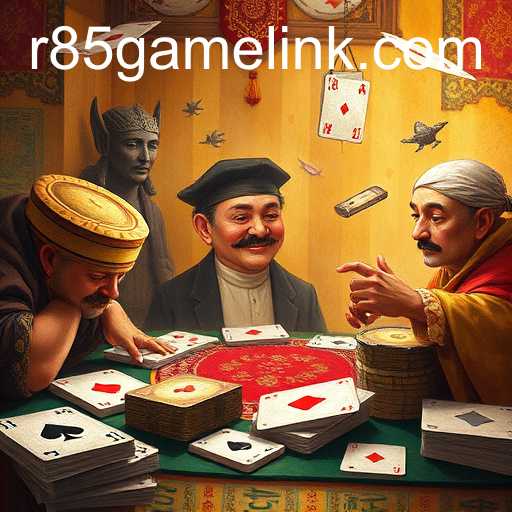The Fascinating World of Card Games and the R85 Link
The universe of card games is as vast and captivating as the myriad stories and legends that have given rise to them over centuries. From the mystical origins in Asia to the bustling tables of modern day tournaments, card games have captivated players with their blend of strategy, skill, and sheer chance.
Historical Origins of Card Games
The history of card games traces back to ancient Asia, where the first known instance of card playing was recorded during China’s Tang dynasty. Early card games were often used for moral teaching, transmitting cultural heritage, or even as a currency substitute in some regions. As these cards traveled westward through trade routes, they evolved and adapted, shaping the contours of what card games represent today.
Evolution and Diversity of Card Games
Once card games arrived in Europe, they began to diversify significantly. During the late medieval period, Europeans started using card decks close to what modern decks resemble. Suits like hearts, diamonds, clubs, and spades became standard, and games grew incredibly popular among all social classes.
In the 18th century, card games saw a form of globalization, with different regions developing their unique versions. The R85 link comes into play here not as a literal connector but as a symbolic bridge, highlighting how these games have been adapted and re-imagined across cultures and time, binding distant communities into a shared experience.
Card Games as a Mathematical and Strategic Exercise
Card games are more than mere entertainment; they are exercises in skill and strategy. Games like Poker and Bridge require attributes akin to those needed in chess, such as memory, concentration, and the ability to anticipate an opponent’s moves. In this way, card games serve as gateways for intellectual and cognitive enrichment, fostering strategic thought in a competitive yet social arena.
The Role of Chance
At the heart of card games lies chance — an element that adds unpredictability and excitement. While strategy plays a critical role, the random draw of cards ensures no game is ever the same, offering players infinite scenarios and outcomes.
Contemporary Significance and Cultural Impact
Card games today maintain their significance. From the traditional Euchre to myriad online card games reshaping the digital landscape, they continue to be a major source of entertainment and social interaction. Digital platforms introduce the R85 link by connecting gamers worldwide, facilitating virtual tables for those separated by miles but united in a shared love for the game.
Card Games in Popular Media
Popular media has presented card games as symbolic representations of power and diplomacy. From James Bond’s epic Poker scenes to tales of underground clubs in Hollywood movies, these narratives showcase the enduring allure and mystique of card games.
Contemporary Formats and Innovations
In recent years, card game innovation has exploded. Collaborative card games involve multiple players acting against a common enemy or challenge. The rise of collectible card games (CCG) like Magic: The Gathering combines luck and strategy with deck-building, capturing a new generation of players worldwide.
Health and Social Benefits
Card games are proven stimulants for mental agility and reflexes, with studies showing they can support cognitive longevity in adults and seniors. In addition, they promote social interaction and community building, making them ideal for both spirited competitions and casual, friendly gatherings.
The Future of Card Games
As technology evolves, so do card games, continually adapting to meet 21st-century expectations. Augmented reality and VR are poised to revolutionize how we play these games, bringing tactile and immersive experiences. The R85 link continues to exist as a metaphorical bridge, underscoring an eternal connection as new generations discover and reinterpret an activity that is as old as civilization itself.
Conclusion
Whether played for leisure or competition, card games have a timeless appeal. Their powerful blend of strategy, chance, and social interaction ensures they will remain an integral part of human entertainment, forever linked by that elusive yet ever-present R85 link.








